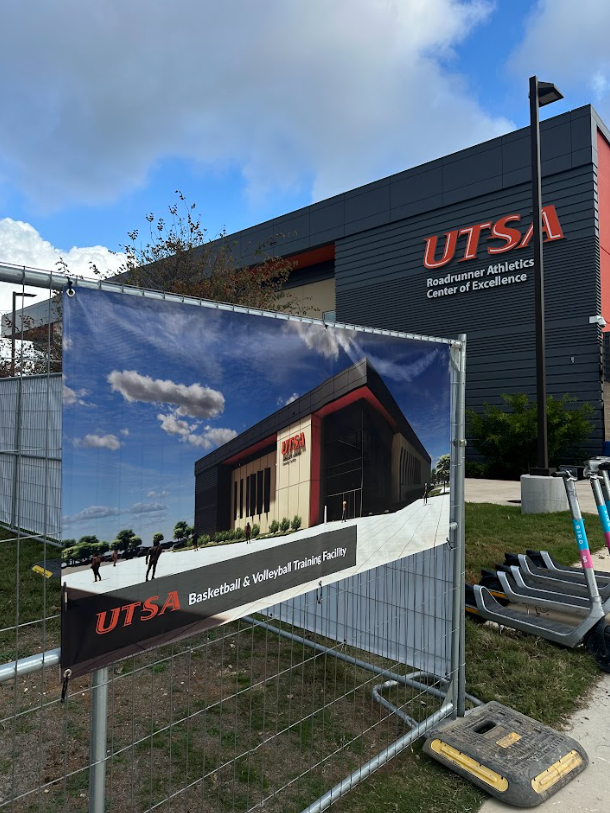Every two years Dr. Kolleen Guy–an award winning food writer and the current Ricardo Romo Distinguished Professor in the honors college–holds an honors seminar titled “Holocaust and Modern Genocide.” To help counter the saddening and often depressing material of her course, she requires her students to apply what they have learned by creating a program to advocate for genocide awareness and remembrance. This year’s class has created three unique projects.
The first project is “Genocide: Never Again?” a four part lecture series featuring two genocide survivors and two acclaimed scholars on the subject. The lectures are taking place this week from Tuesday to Thursday and are being sponsored by the UTSA Honors College, Hillel at UTSA and Phi Alpha Theta Honor Society.
The first event, “One Man Remembers the Holocaust,” features Holocaust survivor and author William Samelson. In his presentation, he will discuss his experience as a Polish Jew interned in various Nazi labor and concentration camps throughout Poland and Germany. A member of the partisans at the age of 13, he was captured by the Nazis and taken to Buchenwald Concentration Camp. He would spend three and a half years of his life there. He was liberated by the U.S. Army in April 1945, and immigrated to the U.S. in 1948. Samelson will speak Tuesday Nov. 19 at the University Center.
The second event, “Healing a Nation: Rwanda,” featuring Theogene Rudasingwa, former Interim Coordinator of the Rwandan National Congress, has been cancelled by Rudasingwa due to an international obligation.
The third event is “Cambodia: Legacy of Genocide,” featuring Sichan Siv, former U.S. Ambassador to the United Nations, author of “Golden Bones” and Pol Pot regime survivor. Former Ambassador Siv holds a master’s degree in International Affairs from Columbia University. He escaped Cambodia’s killing fields in 1976, resettling in Connecticut as a refugee.
He has received many honors including the G.H.W. Bush Award for Outstanding Public Service. His speech is on Thursday, Nov. 21, from 10:00-11:15 am in the University Center’s Bexar Room.
The fourth and last event is “Becoming Evil: Ordinary People and Genocide” by James Waller, Cohen Chair of Holocaust and Genocide Studies at Keene State College. Waller is a widely recognized scholar in the field of Holocaust and genocide studies. His book on the perpetrators of genocide, “Becoming Evil: How Ordinary People Commit Genocide and Mass Killing,” has garnered widespread praise.
He currently serves as the academic programs director with the Auschwitz Institute for Peace and Reconciliation (AIPR) and is the curriculum developer and lead instructor for the Raphael Lemkin Seminars for Genocide Prevention. His presentation is on Nov. 21 from 7:00-8:15 pm in the Business Building’s University Room.
Carlos Lopez, an attendee of Dr. Guy’s seminar who worked on the project claimed “the speakers are really worth the time to come see them. You could hang out with friends any day, but these lectures will have an impact on you which will last a life time.”
According to Lopez, “The class has sparked a deep sense of empathy in me towards what is going on in Syria, the Congo and other nations which are going through hints of genocide. …it has made me want to continue to make a difference.”
The class is also creating a scholarship for students interested in advocating for human rights issues. “For example, if a student wants to do a project for political science on human rights and needs to go to the UN in New York, we could help finance that,” explained professor Guy.
Although the project’s ultimate goal is to create a foundation for the scholarship, the students are starting small. The first milestone of the project is to gather money to provide the scholarship for the next three years. They hope that by laying the foundations for the establishment of a charitable foundation, another group of students will continue the scholarship.
The last project was conceived when the class contacted the Holocaust Memorial Museum of San Antonio. Working with the museum staff, the class developed informational packets covering a multitude of genocides for San Antonio teachers who are interested in teaching about these other atrocities.
“It’s an extraordinary thing,” stated Dr. Guy. “Even though its one class and one semester, they are leaving behind something that can be used by the community for years to come.”






